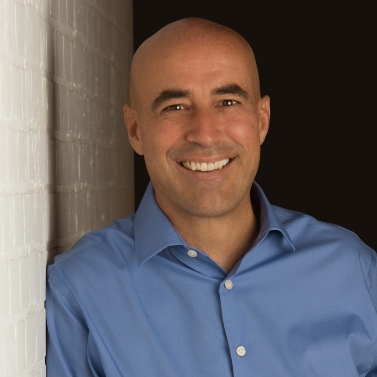
Jo Boyd
Table of Contents
Six Things an Employer Can Do to Help
Be compassionate
As a leader, it is important to remember that addiction is a disease and so the affected employees should be treated with as much compassion and support as any other member of the team who required extended sick leave. There is still a stigma attached to addiction and this could make it difficult or embarrassing for employees to return to work following treatment.
Allow time for meetings and support groups
Make sure you give time (if needed) for someone to attend AA, NA (either, both), and other support groups. This would require a flexible approach to their working or maybe reduced hours to accommodate attendance.
Ensure there is regular contact with their Line Manager
Facilitating regular meets with their line manager to ensure that they are okay, managing workload (no unnecessary pressure), managing meeting attendance. Often just having someone to talk to about mounting stress or pressure can help to alleviate it and put steps in place to manage this before it becomes a bigger issue. It is also important to ensure the line manager feels equipped to support someone who might need mental health first aid.
Randomized testing
Consider agreeing to random drug and alcohol testing with the individual, as they often find that the thought of a random test helps to keep them clean. It is important not to single them out publicly when issuing the tests and to reassure them that the tests are in place as a method to help them stay clean and not to catch them.
Sign post further support
Substance abuse is often used as a form of self-medication (although not helpful or healthy) to cope with other forms of mental ill-health, so it is vital that staff feel supported when they return so that they do not relapse due to stress. Arranging or at least signposting further support through EAP, Occupational Health, counseling, and support for emotional needs in the short term. They may or may not have support in place through their treatment program but they must know where to access further support should they need it. Regardless of their situation, an Occupational Health referral may be appropriate to assess the initial situation.
Assess what other support they might need
Understanding what other support someone might need to deal with the consequences of their addiction such as financial guidance, budgeting tools and consolidation of debt might be helpful and most EAP services would offer this.
Ask the Employee
Employees with substance use disorder are individuals whose needs will vary. The employee is responsible for her recovery and there are numerous viable approaches. Privacy issues can arise as well. So, it is important that the employer not ask for specifics about the treatment plan or judge the plan’s quality should details be shared. The best approach is to ask the employee what, if anything, the employer can do to support her early recovery. For example, for a few months, the employee might need to leave early or take a long lunch to attend counseling or support meetings.

Mary Beth O'Connor

Kia Roberts
Be Open and Flexible to the Requests and Needs of Employees
Employers should be thoughtful and deliberate about creating a system for periodically checking in on the health and well-being of employees that are in recovery from drug and alcohol rehabilitation. This should not feel like the employee is being closely monitored, but that leadership is invested in how the employee is faring upon their return to work.
Employees returning to work after drug/alcohol rehabilitation treatment are often worried about the rumor mill at work and wondering if people are gossiping about their struggles. It’s important for employers to create and maintain a culture that does not promote gossip, and to swiftly and firmly address gossip when they hear it.
Employers should also, more than anything, be open and flexible to the requests and needs of the employee returning to work after drug/alcohol rehabilitation. Different employees have different needs when returning to work, whether it is a requested change of job location, or needing to go to AA/NA meetings during lunch. Keeping the channels of communication open helps to ensure a good and smooth transition back into the workplace.
Respect the Employee’s Privacy
Recognize that your employee has a right to privacy when it comes to his or her decision to seek treatment. Yes, gossip in the break room is unavoidable. You cannot, however, reveal any details about this treatment program if your employee does not want to make her treatment decision public. Remind your employees that they must respect the privacy of their coworkers.

Richard Latimer

Lucas Travis
Lucas Travis, Founder of Inboard Skate.
Create a Recovery-Friendly Workplace
As business owners and employers, we have to make sure that there is a recovery-friendly workplace for these employees.
A recovery-friendly workplace attempts to reduce vulnerability to workplace variables that may develop or perpetuate a drug use disorder while also decreasing hurdles to accessing, acquiring, and sustaining recovery. It informs its executive team and employees on drug use problems in order to eliminate the all-too-common stigma associated with this issue.
Three Tips to Ease the Transition Back to Work
1. Treat the employee like anyone else returning to work after a disability
Welcome them back. Do the paperwork. Review changes to policies or procedures. Ensure all mandatory training has been done. Expect their best work and trust them to do it. Give them the tools and retraining to do the job well.
2. Keep the reasons for their disability leaves confidential
Not only is this required by law, it’s a compassionate practice that will reduce the likelihood of discrimination, hostile work environments, and lawsuits or claims.
3. Stay focused on the essential functions of the jobs they are returning to
Your goal is to give them what they need to do their jobs well. It is not to fix their personal lives. As much as you might want to help, you probably aren’t the one most skilled to do so. Leave that to the experts.

Nance L. Schick

JF Benoist
Don’t Change the Way You Interact
The most important thing is not to treat them any differently. Your employee is likely worried about how they’re going to be seen when they come back—you need to reassure them that they’re accepted and welcome in your workplace.
You can do this by focusing on connecting with your employee. Voice your appreciation for the work they do. Invite them out for lunch or coffee. When you’re conversing with them, follow their lead. Don’t ask, “So how was rehab?” Let them share as much as they feel comfortable sharing.
Helping the employee feel safe and not judged will go a long way in helping them on their recovery journey.
If you’re having a hard time feeling comfortable around this person, remember that addiction is no different from other types of personal conflicts people deal with in their lives. Being addicted to a substance doesn’t make someone a bad person—it just means they weren’t equipped to handle the anxiety or emotions that were piling up for them.
Your employee has taken an active step in bettering themselves, and that’s something that they should be proud of.
Company Events Need Sober-Friendly Options
One of the most important ways employers can support employees who return to work after drug or alcohol rehabilitation is ensuring that that company events and after-work hangouts include sobriety-friendly options. Company happy hours and holiday parties with free alcohol are common in the professional world, especially within startup culture. If most or all of your social events involve drinking, it may be time to look at how you can start making your culture more accessible.
At a minimum, you should be providing several non-alcoholic beverages at your events. It’s also a good idea to make sure that you have some events that don’t involve alcohol at all. Finally, consider making it clear that attendance at work parties and happy hours isn’t mandatory. People in the early stages of recovery often seek to avoid social events with lots of drinking, so you can support their recovery by letting them skip what they need to.

Daivat Dholakia

Carley Trillow
Five Things an Employer Can Do to Help
1. Reject Toxic Myths about Addiction
Of course, no one knows what they don’t know. Diving into what not to do can provide as much insight as what to do. Employers should recognize the concept of tough love often does more damage than good. Many believe that the more individuals struggle because of their addiction, the more motivation they will have to discontinue using substances. More times than not, tough love has the opposite outcome. It only causes more distress and disconnection – which is a large contributor to wanting the substance use. The rest of these employer suggestions will indicate what route to take to foster a supportive environment.
2. Welcome Communication and Relationship
Depending on the circumstances that led to the rehabilitation admission, fear and embarrassment are common for employees returning from treatment. Employers can relieve these worries by opening the lines of communication and expressing your intention of a supportive relationship.
Employees want to know where they stand in the eyes of management when they return – are there hard feelings? Are they looked at as a liability? Are people judging them? All of this wasted energy can be redirected to more productive ways simply by addressing it. Employers and employees can sit down together for a conversation to connect about goals, expectations, and needs (using the tips to follow for best practice). Above all else, be sure to emphasize the desire for your employee to share how they need to be supported as they recover. Chances are the requests and accommodations will be simple and attainable.
3. Recognize Needs
Every person returning to work after addiction treatment may have a different approach to maintaining recovery. Every recovery program has a unique approach and may require outpatient counseling in a range of intensity levels and may recommend self-help meetings as well. This is typically not at the fault of your employee but is strongly recommended by their treatment team. Finding a work-life-recovery balance is one of the biggest challenges after leaving inpatient drug and alcohol rehabilitation centers. Being spread too thin without support is the cause of many preventable relapses. As an employer, you have the unique ability to grant flexibility in work. Employees may need to flex their time and come an hour late and leave an hour early (or other variations), and allowing them this can be the difference between strong employee retention and cyclic turnover.
4. Hold Them Accountable
Recovery and accountability go hand in hand. Luckily, being a supportive employee doesn’t mean you need to let go of your boundaries and expectations. It simply means you need to ensure clarity and moderate flexibility to your preexisting agreements. At the end of the day, people in recovery are a part of a team and are responsible for their actions. Employees may be returning to a position in which they were having difficulties fulfilling obligations previously. It is better to engage in nonjudgmental, but honest communication about new expectations. Employers can collaborate with returning employees on a plan to support better work practices. Give the employee space and time to improve, like anyone else. Emphasizing the desire to help them be successful is important. Should they begin to regress like before treatment, it can be a sign they need some support getting back on track again. Maintaining employment is critical for those in recovery. Spending time on a productive and rewarding task can reduce the amount of free time in early recovery and provide a vision for future success.
5. Destigmatize by talking about it, if they want to (within limits)
Anxiousness about saying the wrong thing is common for employers working with employees returning from treatment. Some of this may be due to worry about asking questions that may be against policy or law. It is best to check into what stance your state takes on conversing about health concerns. As long as it is appropriate for the culture of your workplace, you can foster relationships and trust by asking about to what extent they wish to share about their experience, their status of recovery, and needs. It is your role as an employer to maintain confidentiality about the private matters of your employees. Emphasize your compassion for those who have faced addiction and remind them that their experience will stay confidential unless they choose to share it with others.
Tailor Your Employee’s Hours to Their Rehab Schedule
Transitioning from rehabilitation back to work can be challenging. Employers can show support by creating programs for employees that return to work after rehabilitation. Learn their post-rehab care program and schedule, so that you can determine flexible or reduced working hours that fit this schedule. This ensures that their recovery is continuous despite the transition.

William Taylor

Ryan Zofay
Allow Them to See a therapist
As a recovering addict myself, the best way to help these employees is to show your full support. This will enable them to stay on the right path. Allowing them time to go to meetings or allowing them time to go see a therapist are a couple of things you can do to help recovering employees. Knowing that the people around them support them makes all the difference in the world. So many people do not have this benefit. Even just allowing them to come back to work after rehab is huge.
The majority of companies would not allow this type of leave to occur. When this becomes more of a stipulation rather than a stigma, we are going to see a real change in the recovering workforce. Recovering addicts need and want to work, and giving them the ability to do that without being judged for their illness will start to turn that stigma around and help these people immensely.
Celebrate Your Employee
As an employer, it’s your responsibility to let your employee undergo drug/alcohol rehabilitation back to work with proper dignity. As an employer, you should make some short event on the rejoining day of that employee and celebrate it as his victory over the abuse. This will not only encourage him but also help him to gain back his confidence and reputation. It will also provide a clear message to the rest of the organization that these people are part of their family, so they don’t have to pose any kind of discrimination. Since after the drug rehabilitation some side effects are noticed thus being an employer you should communicate with him one-to-one to know all his issues and make him talk freely.
Going forward, arranging periodic health and mental awareness sessions by welcoming professionals to the team will be a great move. Also, helping them maintain work-life balance and make them feeling protected every time will help build trust between you. Although being human beings, we all make some mistakes and so does the drug addict, but the one who fights to get back into his previous life is unique from rest. This information should be given to them frequently to keep them motivated towards life.

Miranda Yan
This is a crowdsourced article. Contributors' statements do not necessarily reflect the opinion of this website, other people, businesses, or other contributor
